
Westover’s faculty and staff bring a range of life experiences with them when they join the School community — a variety of social and cultural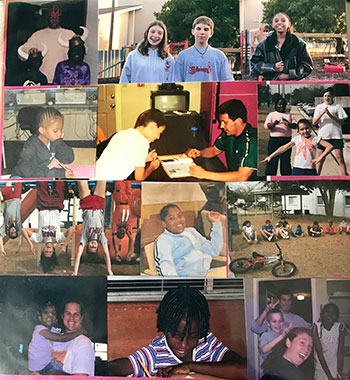 backgrounds, their studies in college, and work experience drawn from public and independent education, business, non-profit organizations, and the arts.
backgrounds, their studies in college, and work experience drawn from public and independent education, business, non-profit organizations, and the arts.
The resumes of several members of the Westover community, however, have one particular work experience in common — they each spent time working in AmeriCorps, a voluntary civil society program supported by the U.S. federal government, foundations, corporations, and other sources of support.
Participants in AmeriCorps programs engage in public service work through a network of nonprofit community organizations and public agencies in the fields of education, public safety, health care, and environmental protection.
Regarded as a domestic Peace Corps, AmeriCorps was formed in 1994, incorporating the existing VISTA program (Volunteers in Service to America) with the National Civilian Community Corps. AmeriCorps State and National — a third division of AmeriCorps — offers grants to local community organizations throughout the United States.
For their service, AmeriCorps participants may be offered cost-of-living allowances and student loan deferment and forgiveness, while gaining valuable professional experience in a range of responsibilities.
Four Westover faculty members — Mary Taylor-Lewis, Chief Strategic Inclusion Officer; Tasheana Dukuly, Westover’s Dean of Students; Heather Capitanio, Director of Residential Life; and Marcie Bruder, dorm staff and coach — recently shared some of their diverse experiences gained through AmeriCorps.
Mary Taylor-Lewis: Living Among Those In Need
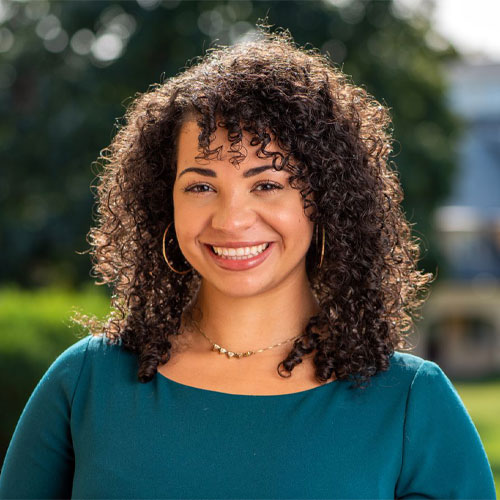 From August 2013 to August 2014, Mary served with the Vincentian Volunteers of Cincinnati, a Catholic organization which works as a partner with AmeriCorps. For that year, Mary lived with other young adults in an intentional community supporting the work of the St. Vincent de Paul Outreach Center, which offered a variety of social services to the residents within the neighboring community — including a free pharmacy, outreach educational programs for youth, and a thrift store.
From August 2013 to August 2014, Mary served with the Vincentian Volunteers of Cincinnati, a Catholic organization which works as a partner with AmeriCorps. For that year, Mary lived with other young adults in an intentional community supporting the work of the St. Vincent de Paul Outreach Center, which offered a variety of social services to the residents within the neighboring community — including a free pharmacy, outreach educational programs for youth, and a thrift store.
“I was placed as a Client Advocate,” Mary explained, working directly with individuals in the neighborhood to help them receive support and services for their household and personal needs, including rental services, furniture, and other basic supplies.
Mary noted that the services the center offered were often just “quick fixes” that could fall short of addressing the longer-term services that could better address the alleviation of poverty in the community.
As part of the program, Mary lived with two other volunteers “in a massive house just a block up from the community center in a neighborhood blighted in poverty, so we were literally and figuratively living alongside our neighbors,” who were among their clients.
Although the volunteers did not have to pay for rent or utilities, Mary and her housemates each received only $100 a month for their living expenses — “my parents were paying my cell phone bill” — and so they were expected to use food stamps and other social assistance programs in solidarity with their clients.
Mary and the other volunteers also were expected to take part in weekly meetings with their faith director as part of their faith journey in social justice and to explore ways to create more substantial and meaningful change within the community.
“It was frustrating, but in a good way,” Mary said with a laugh. “I was fresh out of undergraduate school, and this was my first professional experience. It absolutely taught me all of my organizational skills and it also taught me the power of living simply, not just in terms of material things but in terms of searching for justice. Being mindful about what we are doing and why we are doing it, and who we are doing it for.”
Working alongside her housemates — one of whom would later become her husband – also taught Mary “the deep power of relationships. We were very different people and yet very similar in some ways” in striving for “a lifelong commitment of being in service in some way, shape, or form.”
In her work, Mary often felt challenged by the desire of “wanting to help, needing to help, but not being able to help” some of her clients who were facing dire living conditions.
“We had some people who were literally living on blankets and pallets on their floor and who didn’t have heat," she said. "They were asking for beds and utility assistance, but we had only a certain number of dollars on hand to offer. The need was always massively higher than what we were able to give.”
Her experiences taught her how to talk with and listen to people in need while treating them with dignity and respect.
Living in the intentional community also reinforced Mary’s belief “in the power of relationships to shape institutions and to shape and bring about change” — something that Mary said that she will retain for the rest of her life.
These and other lessons she learned in the program, Mary added, are ones she brings to her work at Westover in supporting the institution’s efforts to promote diversity, equity, and inclusion within the School community.
Tasheana Dukuly: ‘Assume Goodness’
During Tasheana’s service through AmeriCorps from the summer of 2012 to the summer of 2013, she said, “I worked at a nonprofit youth center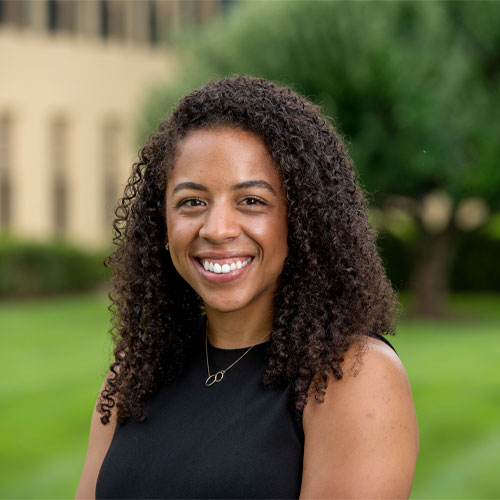 called United Teen Equality Center (UTEC) in Lowell, Ma. I was a youth organizer and helped young people with their campaigns and also helped them register to vote. We canvassed, went to the Massachusetts State House, and got people in Lowell excited about elections.”
called United Teen Equality Center (UTEC) in Lowell, Ma. I was a youth organizer and helped young people with their campaigns and also helped them register to vote. We canvassed, went to the Massachusetts State House, and got people in Lowell excited about elections.”
“It was my first experience out of college,” Tasheana recalled, “and I was so lucky to be able to serve in the city I’m from. I was always amazed by the strength, resilience, and positivity of our young people in the program; I still think about them to this day. I was also very inspired by fellow AmeriCorps members who came from around the state and country to serve in Lowell. I made some of my best friends there.”
“The long hours were challenging,” Tasheana acknowledged. “We spent a lot of nights canvassing, phone banking, and planning events. I think I ordered over 100 pizzas for the late nights we spent working that year. But those nights were also the most fulfilling.”
Reflecting on her work with UTEC, she added, “This experience taught me how to ‘belong to where you are’ and live in the moment with the people around you.”
It also helped prepare Tasheana for her role as Westover’s Dean of Student.
“It taught me a lot about how to work with young people, as my main role was outreach and keeping our young people engaged in the program,” she said.
“UTEC had a really powerful set of expectations we all lived by when we worked there,” Tasheana said. “My favorite one was ‘Assume Goodness.’ So, if you were having a misunderstanding with someone, assume goodness first rather than assuming the worst. I try to approach most situations this way.”
Heather Capitanio: Inspiring A Career Working With Youth
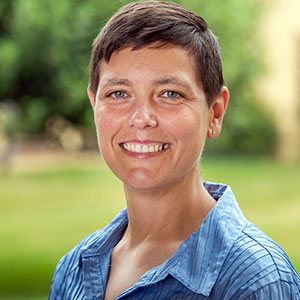 From September 2004 through August 2005, Heather recalled, “I was a Promise Fellow for Pinellas County, Florida. I worked with middle- and high school-age students as a mentor in a program called ‘Youth as Resources,’ which was also part of Florida 4-H.”
From September 2004 through August 2005, Heather recalled, “I was a Promise Fellow for Pinellas County, Florida. I worked with middle- and high school-age students as a mentor in a program called ‘Youth as Resources,’ which was also part of Florida 4-H.”
As a Program Fellow, Heather said, “I trained the youth mentors to deliver diversity and healthy living programs to other youth in the area.”
While Heather mentored her students, however, she was also benefiting from the experience.
“My time in AmeriCorps was a time of great growth before my first ‘real’ job out of college,” she explained. “I started to gain the skills I still use today while working with and managing youth. It was also a time when I was able to work on my professional and public-speaking skills.”
For Heather, “The most challenging part was moving out of New England and away from family,” she added, “but that only allowed me to grow further and learn about another part of the country.”
Heather’s AmeriCorps experience also set her on the path to her future career.
As a result of her time working in Youth as Resources, Heather said, “I made the decision that I wanted to devote my career to working with and helping youth. There was a well-being and mental health aspect of the program I worked in, and that has since been a focus of mine in the last 15 years of living with adolescent girls in high school dorms.”
Marcie Bruder: Lessons In Empathy
For her AmeriCorps service, Marcie worked from August 2003 through June 2004 in a program called Athletes in Service in St. Petersburg,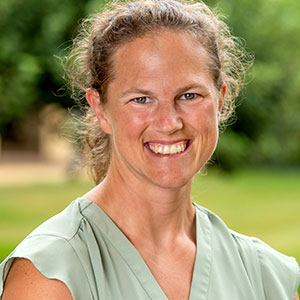 Florida.
Florida.
“My time in AmeriCorps was so eye-opening,” Marcie recalled. “It really taught me a lot about empathy, about giving of your time and enjoying the benefits of seeing youth grow into their own.”
Marcie admits that “I really wish I knew then what I know now,” drawn from her years since spent working with youth. “It might have made a difference for some of them.”
Marcie recalled one 10-year-old boy she mentored who had been placed in foster care because his deaf single mother was unable to properly care for him. “It was hard to face, knowing what a great kid he was and not knowing where he would end up.”
But Marcie also recalled a teenage girl who shared her frustrations in connecting with her father. “I remember giving her some suggestions and she took my words to heart,” Marcie said. Several years later, the girl wrote to Marcie to thank her, telling her she now had a great relationship with her father.
“I was shocked,” Marcie added, “I had only been 22 at the time giving a 17-year-old some advice.” But hearing from the girl later on reminded Marcie that “mentoring can be a meaningful and rewarding opportunity.”
Looking back, Marcie now realizes that while working in the Athletes in Service program, “I gained skills in mentoring, teaching, coaching, community building, and more.”
For example, Marcie said, “my group set up a tutoring center at a local church where middle school students could work on their homework or hang out,” Marcie said. “They learned how to organize their work and get help with their homework. I remember several who kept returning whose grades were improving.” She still can recall seeing “the smiles on their faces” because of what their hard work had accomplished. “It was so heartwarming to know that we were supporting them and creating a fun environment to learn.”
Through her AmeriCorps experience, Marcie said, “I recognized that I really enjoyed being a part of the academic world. I wanted to keep mentoring and guiding students with life skills” — work she does daily at Westover as a dorm staff and a coach.
Among other lessons she learned that she still uses daily at Westover:
“That everyone is coming from different backgrounds and not to judge them, because I will never know what their experience is truly like. Just be there and show you are a support.”
Marcie added that her time with AmeriCorps was “a very humbling experience that taught me that you do not need a lot in life to be happy, but that you just need to recognize what makes you happy. Helping others does that for me.”
.pdf&command_2=resize&height_2=85)






.jpg&command_2=resize&height_2=85)




%20(1)%20(1).jpg&command_2=resize&height_2=85)


.jpg&command_2=resize&height_2=85)
.JPG&command_2=resize&height_2=85)

%20w%20Raleway.jpg&command_2=resize&height_2=85)

